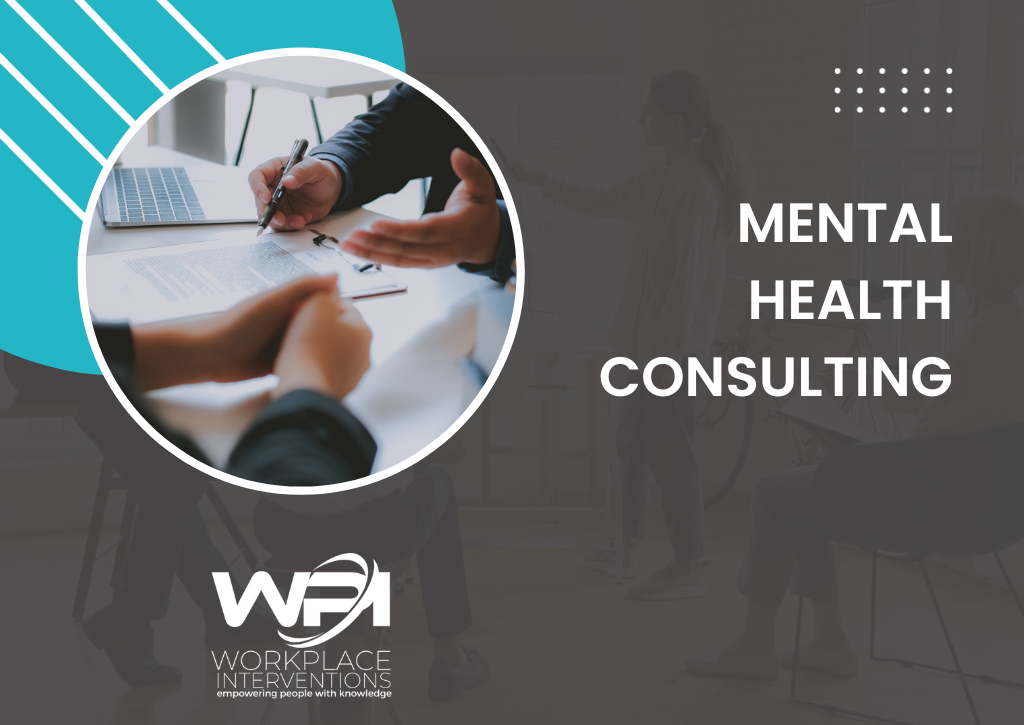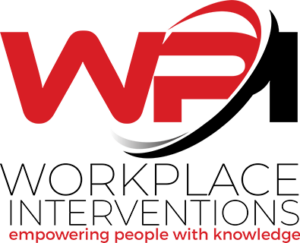TalkMENTAL HEALTH SERVICES
Workplace wellbeing is a journey not a destination.
Overview
Every workplace has a responsibility to ensure that the mental health of its workers is promoted and supported. Understanding the interconnection between mental health and your workplace is critical for a more holistic approach to promoting population health and wellbeing.
Implementing a mental health and wellbeing framework needs to be a collaborative approach that aims to decrease risk factors and increase protective factors within your organisation.
WPIs consulting team can assist to optimise your strategy and support you to successfully execute your plans, no matter what stage of the journey you are at.
When employees thrive, so do businesses.
Systems Approach

- Protection-protecting mental health by reducing work-related risk factors for mental health conditions and increasing protective factors.
- Promotion–promoting mental health and wellbeing by developing the positive aspects of work as well as workers’ strengths and capabilities.
- Intervention-addressing mental health difficulties and conditions among workers, regardless of whether the workplace contributed.
This integrated approach forms the good practice framework for organisational mental health and wellbeing.
- People at Work Survey
- Early Intervention
Our Services
- Needs Analysis
A Mental Health Needs Analysis will assist in identifying and prioritising issues and needs of the organisation and employees by conducting a needs assessment which uses a number of methods for gathering information. A workplace needs analysis combines the organisational profile and internal analysis of the strengths, weaknesses, opportunities, and threats (SWOT) about the development of a workplace mental health program. It also builds on the workplace analysis by identifying the perception and view of internal stakeholders such as senior management, employees and external stakeholders in the what, why and how of health issues and priorities for the workplace.
The People at Work (PAW) Survey will assist in identifying workplace psychosocial risk and identifying the components that make up a psychosocial risk management process with your business. The PAW survey is based on a comprehensive review of the job demands and job resources that have been studied in the occupational health literature, whilst the survey considers exposure to workplace bullying covers a range of outcome factors shown through the use of validated risk assessment tools including the K10 (Psychological distress measure) and HSEUK (health and safety management standards indicator tool). Your organisation will be presented initially with the PAW Survey results and a detailed needs analysis report with a recommendation for qualitative data collection through focus groups.
Focus Groups are used by following your psychosocial surveys to drill down into specific issues and brainstorm ideas for growth and/or development. However, focus groups are also used post-survey to highlight themes for investigation regarding your upcoming targeted approach to improving mental health and wellbeing in your organisation.
Hourly Consultation is great way for our subject matter experts to engage with you and review your organisation’s mental health and wellbeing strategy holistically. We do this through identifying needs, creating a plan, developing and implementing solutions and evaluating outcomes. We collaborate with you to design a targeted and practical strategy, that builds upon internal capability, developing policies and processes to create sustainable outcomes.
Mental Health First Aid Practice Groups are designed for those trained in MHFA to enable continuous skill development in applying mental health interventions and soft skill development. Importantly, Practice Groups recognise that reflection doesn’t have to be about positive or successful experiences. It provides a space to explore when things don’t go well and recognises that these times are key opportunities for learning and improvement.

What our course participants are saying about us
Have a question? Get in touch with us


